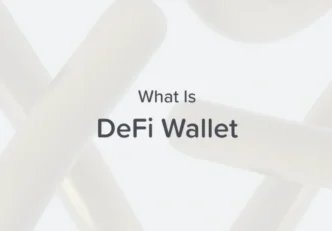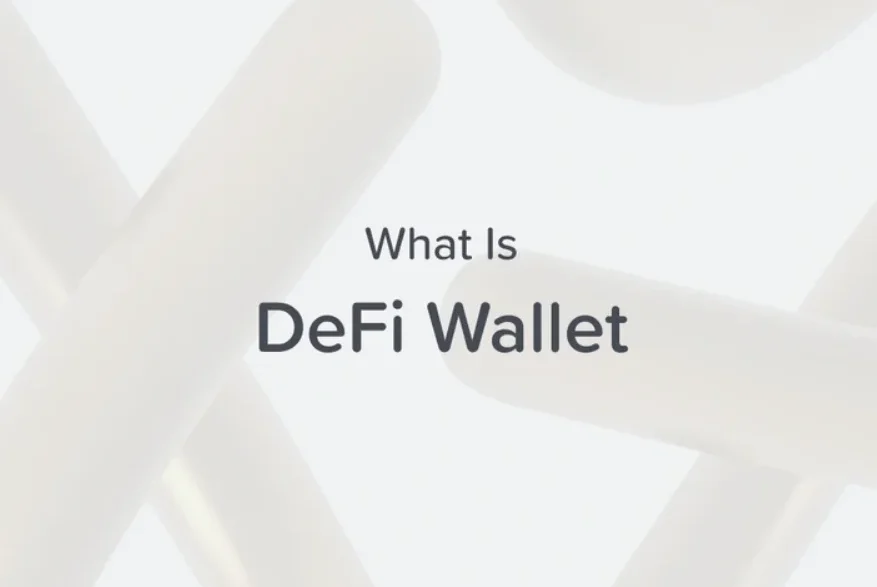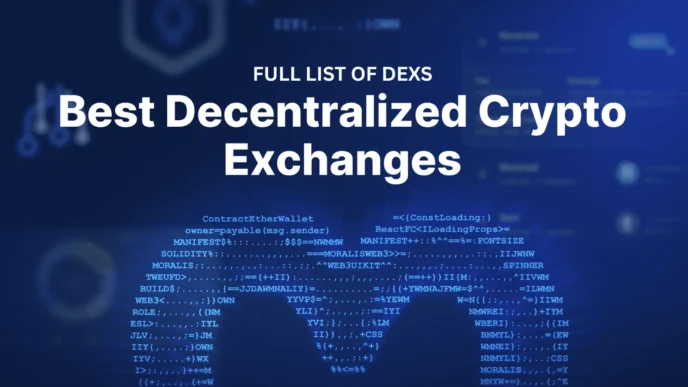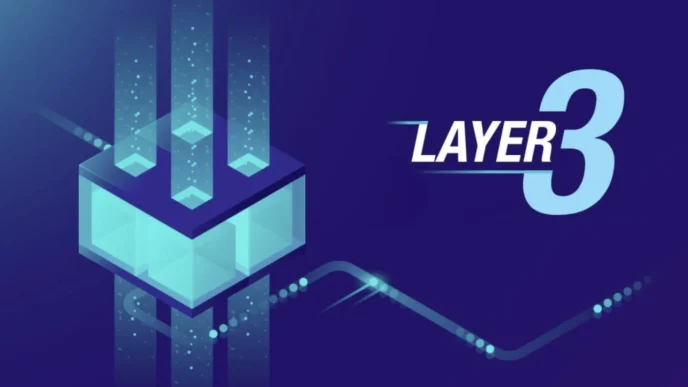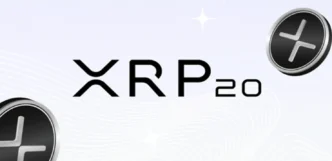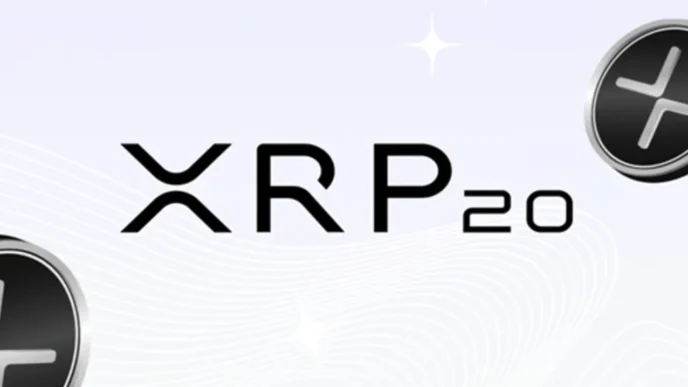Introduction to DeFi Wallets
A DeFi wallet is a type of cryptocurrency wallet specifically designed to interact with decentralized finance (DeFi) applications.
Unlike traditional crypto wallets, DeFi wallets offer users full control over their funds, providing access to a wide range of DeFi services such as lending, borrowing, and trading directly from the wallet.
These wallets are non-custodial, meaning users retain their private keys and control their assets without relying on third parties. Best DeFi wallets include hardware wallets like Ledger and Trezor, as well as software wallets like MetaMask and Trust Wallet.
Importance of DeFi Wallets
DeFi wallets are crucial for participating in the DeFi ecosystem. They enable users to securely store and manage their crypto assets while interacting with various DeFi protocols. By providing decentralized access, these wallets ensure higher security and privacy compared to traditional centralized wallets.
DeFi wallets also facilitate seamless integration with multiple DeFi platforms, allowing users to earn passive income via DeFi services, such as staking and yield farming, and access a diverse range of financial products.
Difference Between DeFi Wallets and Traditional Crypto Wallets
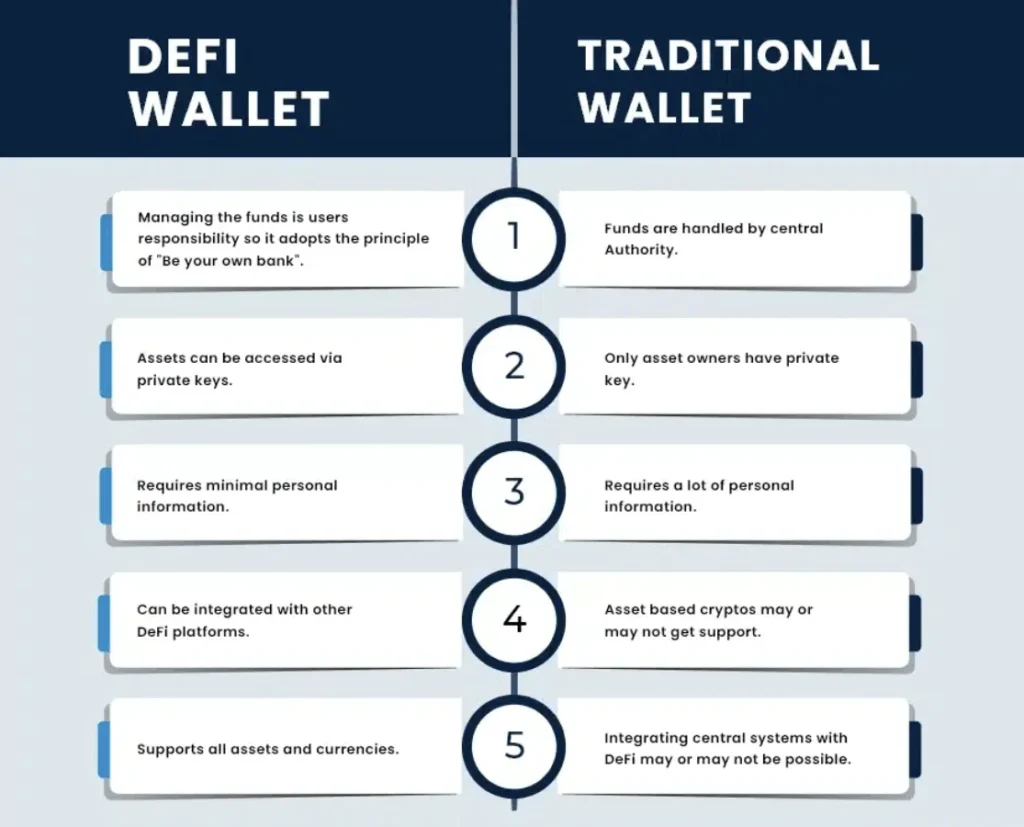
DeFi wallets differ from traditional crypto wallets in several key aspects:
- Control and Ownership: DeFi wallets are non-custodial, giving users full control over their private keys and assets. Traditional crypto wallets can be custodial, where a third party holds the keys.
- DeFi Integration: DeFi wallets offer direct access to various DeFi applications and protocols, enabling activities like lending, borrowing, and trading within the wallet itself. Traditional wallets may not provide direct integration with DeFi services.
- Decentralization: DeFi wallets leverage blockchain technology to ensure decentralization, whereas traditional wallets can be either centralized or decentralized depending on their design and hosting.
- Security and Privacy: DeFi wallets prioritize user privacy and security by using encryption techniques and allowing anonymous interactions with DeFi protocols. Traditional wallets may not offer the same level of anonymity and security features.
Using a DeFi wallet, users can store their crypto assets securely, interact with DeFi applications, and explore a wide range of financial services without relying on centralized intermediaries.
1. Ledger Wallet
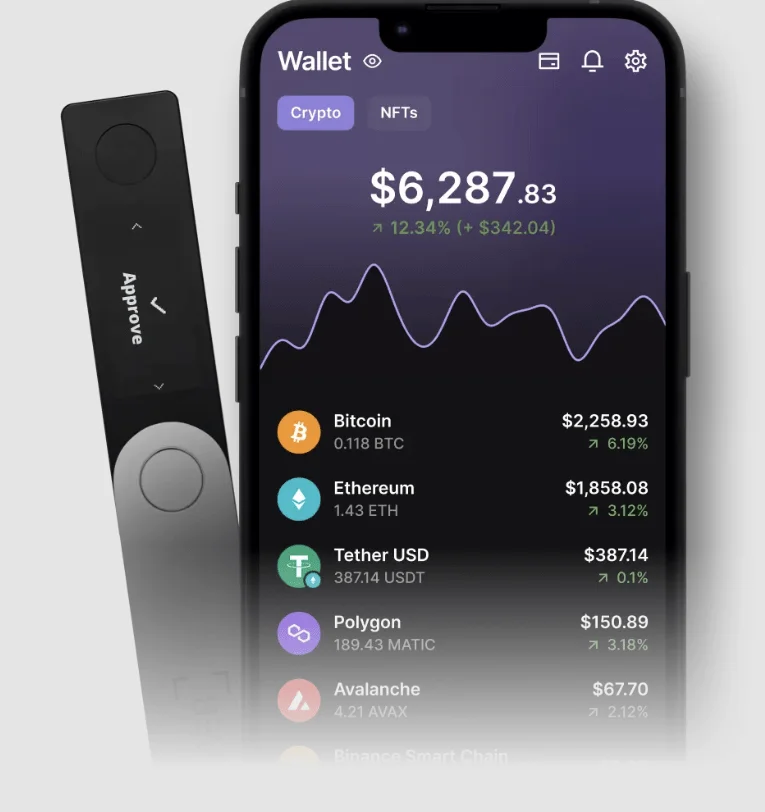
Ledger Wallet is a popular hardware wallet known for its exceptional security features. It is designed to store cryptocurrencies offline, providing robust protection against online threats such as hacking and phishing attacks.
This wallet supports a wide range of cryptocurrencies, making it a versatile option for users who hold multiple types of digital assets.
Features
- Top-Notch Security Protocols: Ledger Wallet uses advanced encryption techniques and stores private keys offline in a physical device, which significantly reduces the risk of unauthorized access.
- User-Friendly Interface: The wallet offers an intuitive interface, allowing both experienced users and beginners to manage their crypto assets easily.
- Multi-Currency Support: Ledger Wallet supports numerous cryptocurrencies, including Bitcoin, Ethereum, and various DeFi tokens, enabling users to store and manage diverse assets.
- Seamless Integration: It integrates with various blockchain networks, ensuring swift and efficient transactions while maintaining decentralization and transparency.
- Real-Time Transaction Tracking: Provides users with the ability to monitor their digital currency transactions in real-time, promoting accountability and financial awareness.
Pros and Cons
Pros:
- High Security: Offline storage of private keys and advanced encryption offer superior protection.
- Wide Compatibility: Supports a broad range of cryptocurrencies, making it suitable for diverse portfolios.
- User Experience: Simple and user-friendly interface that caters to both novices and experts.
Cons:
- Cost: As a hardware wallet, Ledger can be more expensive compared to software wallets.
- Physical Device Requirement: Users must keep the physical device secure and accessible to manage their assets.
Ledger Wallet stands out as a reliable choice for those looking to securely store their crypto assets and interact with various DeFi protocols. Its robust security features and support for multiple cryptocurrencies make it a preferred wallet for both individual and institutional users.
Related:
8 Best Crypto Staking Platforms in 2024
The Best Cold Wallets for Crypto in 2024: Unlock the Ultimate Security
2. MetaMask Wallet
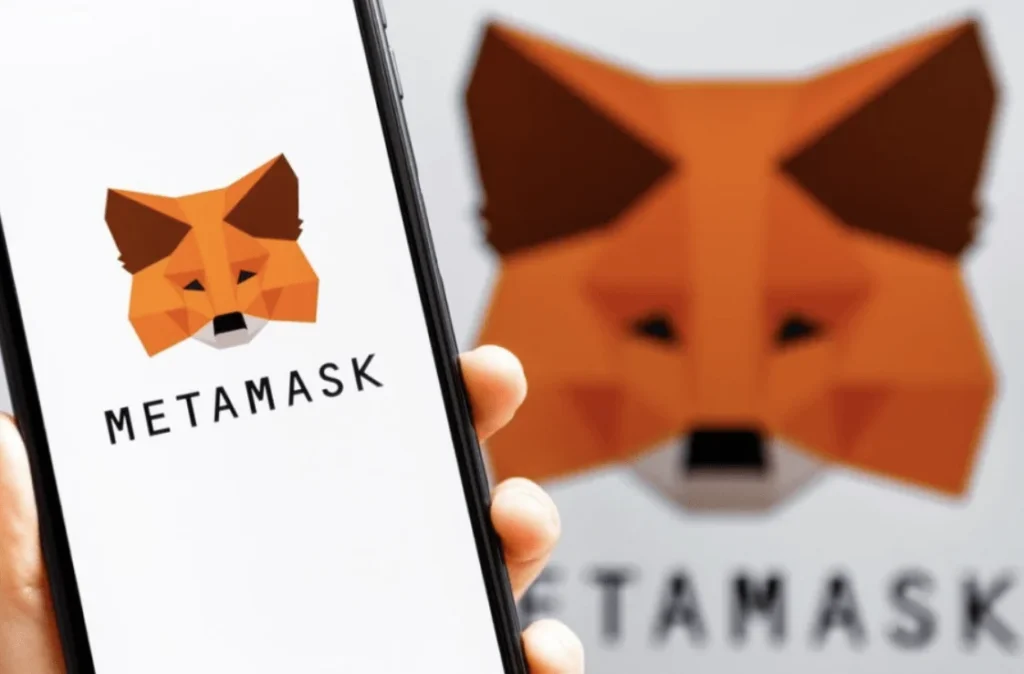
MetaMask Wallet is a widely used Web3 wallet that connects users to the Ethereum blockchain and various DeFi platforms.
It allows users to manage their crypto assets, interact with DeFi protocols, and seamlessly access decentralized applications (dApps) directly from their browser. MetaMask supports multiple cryptocurrencies, making it a versatile choice for DeFi enthusiasts.
Features
- Web3 Compatibility: MetaMask acts as a bridge to the Ethereum blockchain, enabling users to interact with various DeFi applications and platforms.
- User-Friendly Interface: The wallet offers an intuitive design, making it easy for users to store their crypto assets and navigate DeFi protocols.
- Security: MetaMask provides secure private key management, ensuring that users have full control over their keys.
- Integration: Supports integration with multiple dApps, allowing users to participate in DeFi activities like lending, borrowing, and trading.
- Mobile and Browser Extension: Available as a browser extension and mobile app, providing flexibility and convenience.
Pros and Cons
Pros:
- Ease of Use: Simple interface ideal for both beginners and experienced users.
- Wide Compatibility: Supports various DeFi protocols and dApps.
- Security: Robust private key management ensures asset safety.
Cons:
- Online Storage: As a software wallet, it may be more vulnerable to online threats compared to hardware wallets.
- Limited to Ethereum: Primarily supports Ethereum and ERC-20 tokens, which might be restrictive for users with assets on other blockchains.
MetaMask Wallet is a reliable DeFi crypto wallet that offers extensive functionality and integration with the DeFi ecosystem.
It allows users to store their crypto assets securely and interact with DeFi projects seamlessly, making it a preferred choice for accessing the diverse financial services offered by DeFi platforms
3. Trust Wallet
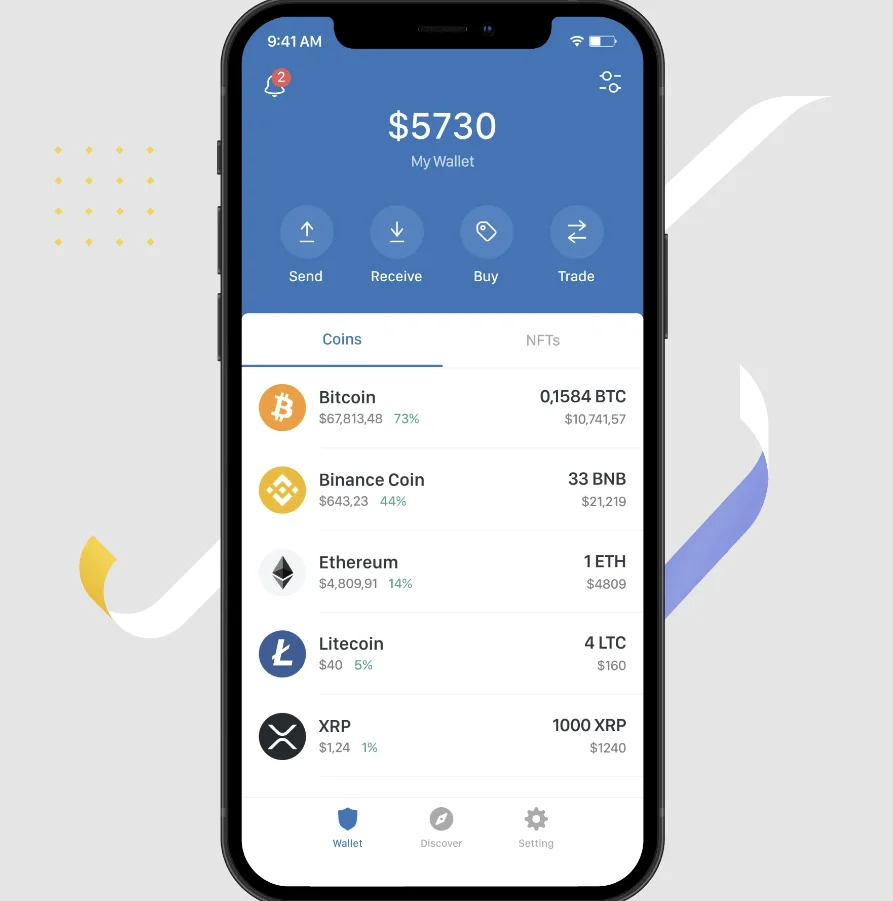
Trust Wallet is a widely used crypto wallet that supports a variety of digital currencies and DeFi products. Known for its user-friendly interface, it allows users to store and manage their crypto assets securely.
Trust Wallet also facilitates interaction with various DeFi platforms and decentralized applications (dApps).
Features
- Multi-Currency Support: Trust Wallet supports numerous cryptocurrencies, including Ethereum, Bitcoin, and many DeFi coins.
- Integration with DeFi Platforms: Allows seamless interaction with DeFi protocols and supports activities like yield farming and staking.
- User-Friendly Interface: The wallet is designed to be easy to use, making it accessible for both beginners and experienced users.
- Security: Provides secure private key management and includes features like biometric authentication for added security.
- Multi-Platform Availability: Available as a mobile app on iOS and Android, offering flexibility and convenience.
Pros and Cons
Pros:
- Wide Cryptocurrency Support: Supports a diverse range of digital assets.
- Easy to Use: Intuitive interface suitable for all user levels.
- High Security: Robust security features ensure the safety of crypto assets.
- Integration with DeFi Platforms: Facilitates interaction with various DeFi protocols.
Cons:
- Limited Desktop Support: Primarily available as a mobile app, lacking a dedicated desktop version.
- iOS Limitations: Built-in dApp browser is not available on iOS due to Apple’s restrictions.
Trust Wallet is a versatile and secure option for managing and exploring the top DeFi wallet options.
It allows users to securely store their crypto assets, interact with DeFi protocols, and access the diverse financial services offered by various platforms. This makes it an ideal choice for users looking to engage with the DeFi ecosystem seamlessly.
4. Argent Wallet
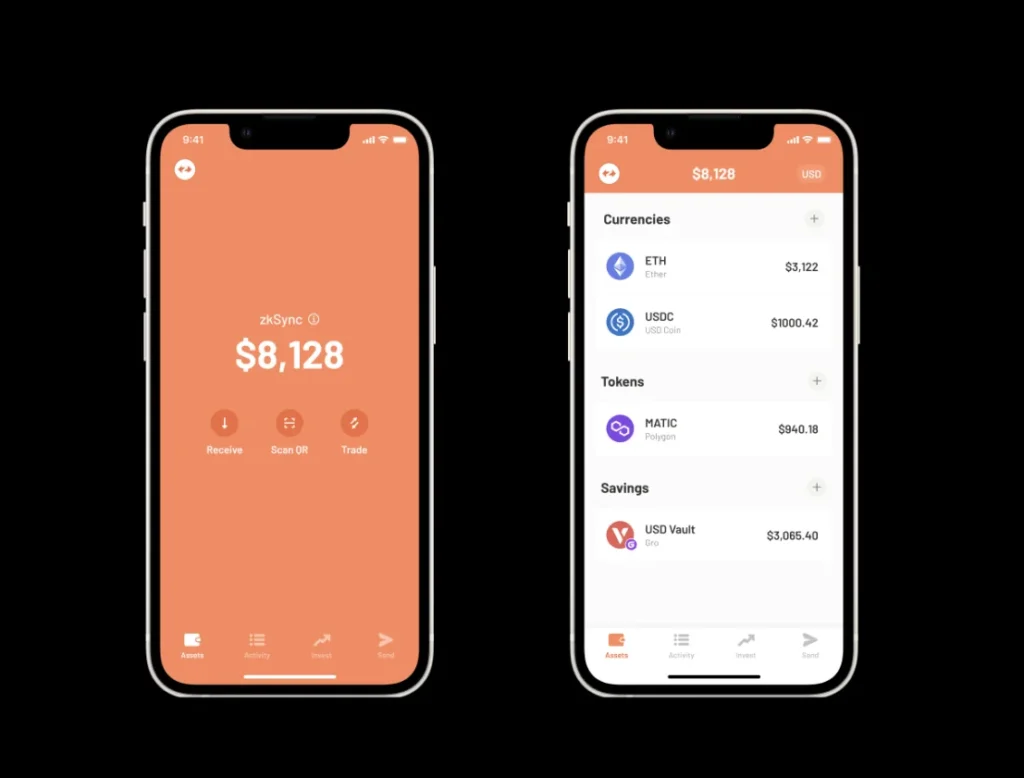
Argent Wallet is a user-friendly DeFi wallet designed to provide secure and easy access to decentralized finance. It is known for its integration with various DeFi protocols and its focus on user security and convenience. The wallet is available as a mobile app, making it accessible on-the-go.
Features
- Security: Utilizes smart contract-based security features, including social recovery and daily transaction limits.
- User-Friendly: Simple interface designed for both beginners and experienced users.
- DeFi Integration: Seamlessly connects with various DeFi protocols for activities like lending, borrowing, and staking.
- No Seed Phrase: Users can recover their wallets without needing to remember a complex seed phrase.
Pros and Cons
Pros:
- High Security: Innovative security features protect user assets.
- Ease of Use: Intuitive interface simplifies DeFi interactions.
- DeFi Access: Direct integration with multiple DeFi platforms.
- Recovery Options: Social recovery feature enhances wallet accessibility.
Cons:
- Limited to Ethereum: Primarily supports Ethereum-based assets.
- Mobile Only: No desktop version, which might limit user flexibility.
Argent Wallet is a robust choice for those looking to engage with DeFi products securely and conveniently. It offers a range of features that cater to both novice and advanced users, making it a versatile option in the DeFi wallet landscape.
5. Guarda Wallet
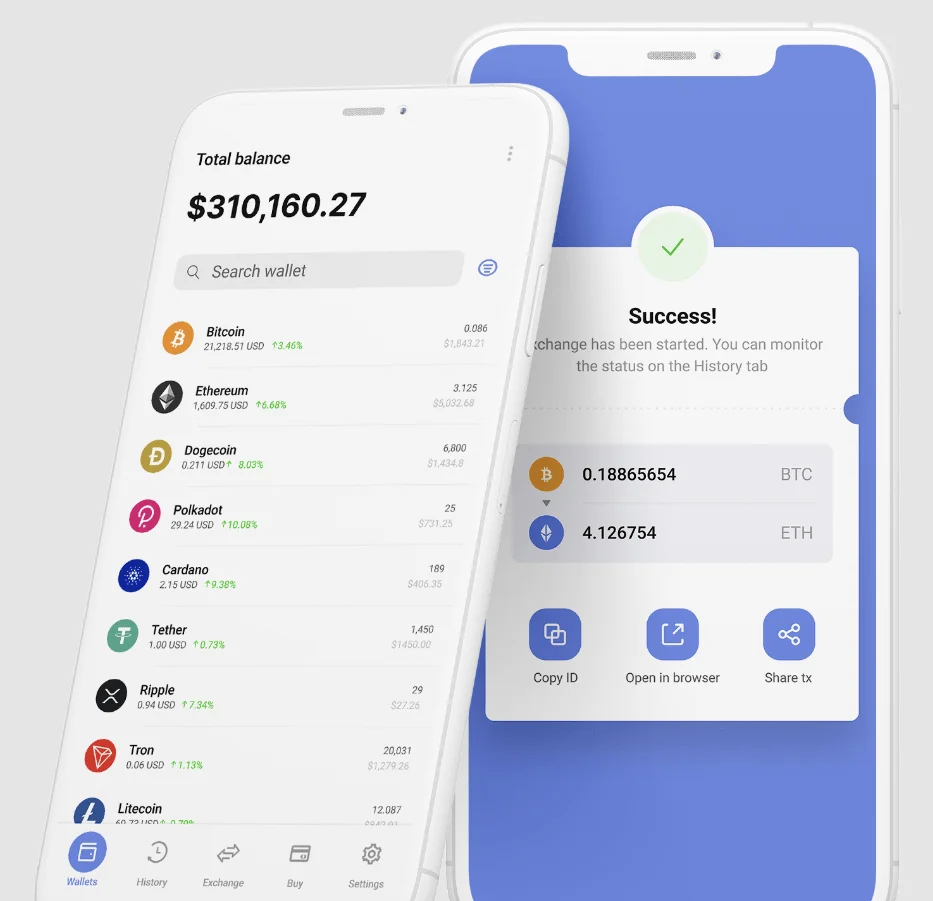
Guarda Wallet is a versatile and secure crypto wallet that supports a wide range of digital currencies. It is designed to provide users with a seamless experience for managing their crypto assets.
The wallet is available as a web, desktop, and mobile application, offering flexibility and convenience.
Features
- Multi-Currency Support: Guarda Wallet supports a broad array of cryptocurrencies, including Bitcoin, Ethereum, and various DeFi tokens.
- In-Wallet Exchange: Allows users to swap cryptocurrencies directly within the wallet without the need for external exchanges.
- Security: Features multi-step verification, two-factor authentication, and backup recovery options to ensure asset safety.
- Integration with DeFi: Supports integration with various DeFi protocols, enabling users to earn the best returns through activities like staking and lending.
- User-Friendly Interface: The wallet offers an intuitive design, making it easy for users to manage and store their crypto assets securely.
Pros and Cons
Pros:
- Comprehensive Support: Supports a wide range of cryptocurrencies and DeFi tokens.
- Security Features: Robust security measures protect user assets.
- Ease of Use: User-friendly interface suitable for both beginners and experienced users.
- Flexibility: Available on web, desktop, and mobile platforms.
Cons:
- No Hardware Option: As a software wallet, it may be less secure than hardware wallets.
- Dependence on Internet: Requires internet access for most functionalities, which might pose risks.
Guarda Wallet is a strong choice for users looking to store and manage their crypto assets securely while accessing various DeFi protocols.
Its robust security features and multi-platform availability make it a reliable option in the DeFi wallet space.
6. Crypto.com Wallet
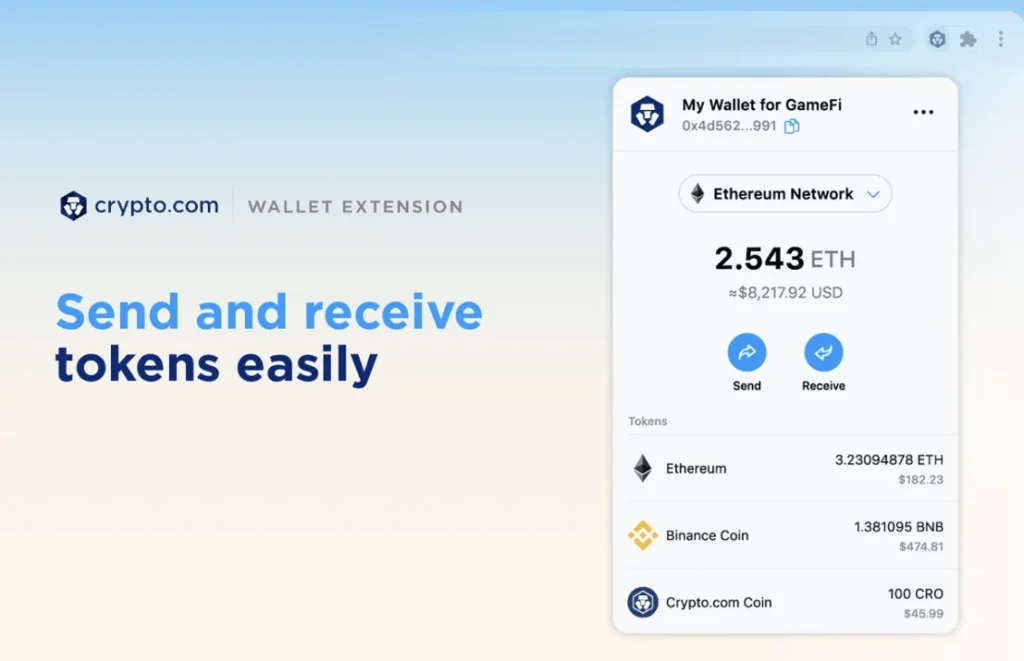
Crypto.com Wallet is a versatile and secure option for managing and storing cryptocurrencies. It provides users with complete control over their private keys and supports a wide range of digital assets.
This wallet integrates with the Crypto.com app, allowing seamless access to the platform’s extensive financial services.
Features
- Complete Control: Users have full control over their private keys, enhancing security and autonomy.
- Multi-Currency Support: Supports over 300 digital assets, including Bitcoin, Ethereum, and ERC-20 tokens.
- DeFi Integration: Facilitates interaction with various DeFi protocols, enabling users to earn rewards through activities like staking and farming.
- User-Friendly Interface: The wallet offers a straightforward interface, making it easy for users to store, swap, and transfer cryptocurrencies.
- Security: Equipped with extensive security features, including biometric authentication and two-factor authentication.
Pros and Cons
Pros:
- High Security: Robust security features ensure the safety of crypto assets.
- Wide Asset Support: Supports a diverse range of cryptocurrencies.
- DeFi Access: Allows seamless interaction with DeFi protocols and projects.
- Mobile Access: Available as a mobile app, providing flexibility and convenience.
Cons:
- Complexity: May be more complex to use than centralized exchange wallets.
- Limited dApp Support: Not all decentralized applications are supported.
Crypto.com defi Wallet is a reliable choice for users looking to store and manage their crypto assets securely while exploring various DeFi opportunities. It offers a wide range of features that cater to both novice and experienced users, making it a valuable tool in the DeFi ecosystem
7. Bitget Wallet
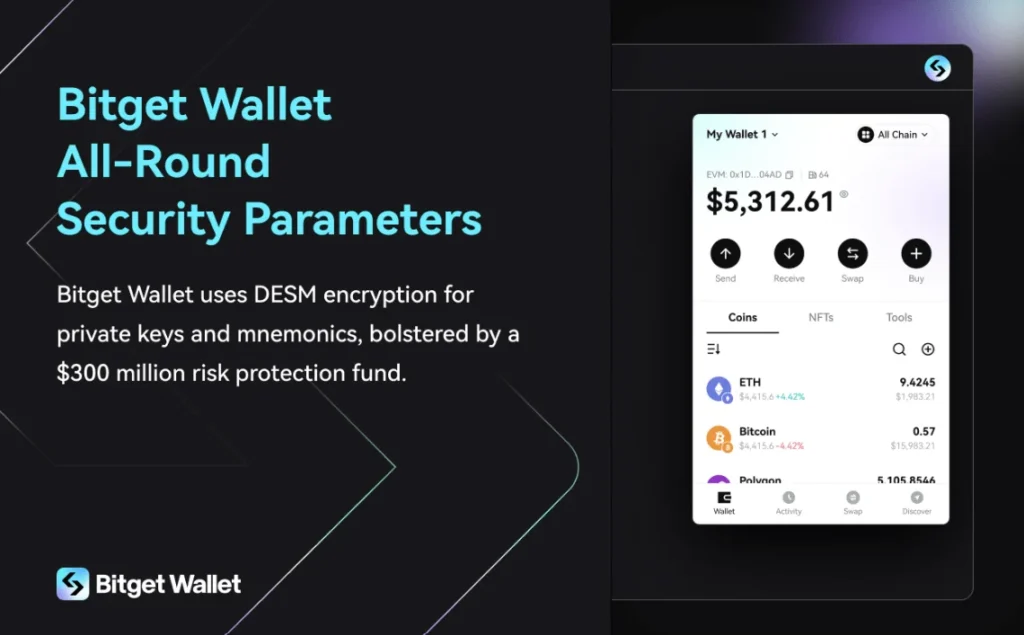
Bitget Wallet is a comprehensive and user-friendly DeFi wallet designed to support a wide range of cryptocurrencies and decentralized applications (dApps).
It is particularly known for its robust security features and extensive support for various blockchain networks.
The wallet integrates seamlessly with the Bitget trading platform, providing users with a versatile tool for managing their digital assets.
Features
- Multi-Currency Support: Bitget Wallet supports over 250,000 different cryptocurrencies and more than 100 blockchain networks, making it one of the most versatile wallets available.
- Integration with DeFi Protocols: Users can easily interact with various DeFi protocols and projects, including staking, farming, and swapping tokens.
- Copy Trading: The wallet offers copy trading features, allowing users to replicate the trades of experienced traders automatically.
- Bitget Launchpad: Provides access to new crypto projects, enabling users to invest in promising new tokens before they become widely available.
- Security: Utilizes advanced security technologies, including multi-party computation (MPC) and a protection fund to safeguard user assets.
Pros and Cons
Pros:
- Extensive Cryptocurrency Support: Supports a vast array of cryptocurrencies and blockchain networks, offering great flexibility for users.
- User-Friendly Interface: Designed to be intuitive and easy to use, even for beginners.
- High Security: Robust security measures protect user assets effectively.
- Integration with Trading Platform: Seamlessly connects with Bitget’s trading platform, enhancing the overall user experience.
Cons:
- No Desktop Version: Primarily available as a mobile app and web application, lacking a dedicated desktop client.
- High Fees for Certain Services: In-app purchases and certain transaction types may incur higher fees compared to some other wallets.
Bitget Wallet is a solid choice for users looking to store their crypto securely while having access to a wide range of DeFi protocols and projects.
It offers a robust set of features that cater to both novice and experienced users, making it a valuable tool in the DeFi ecosystem
8. Edge Wallet
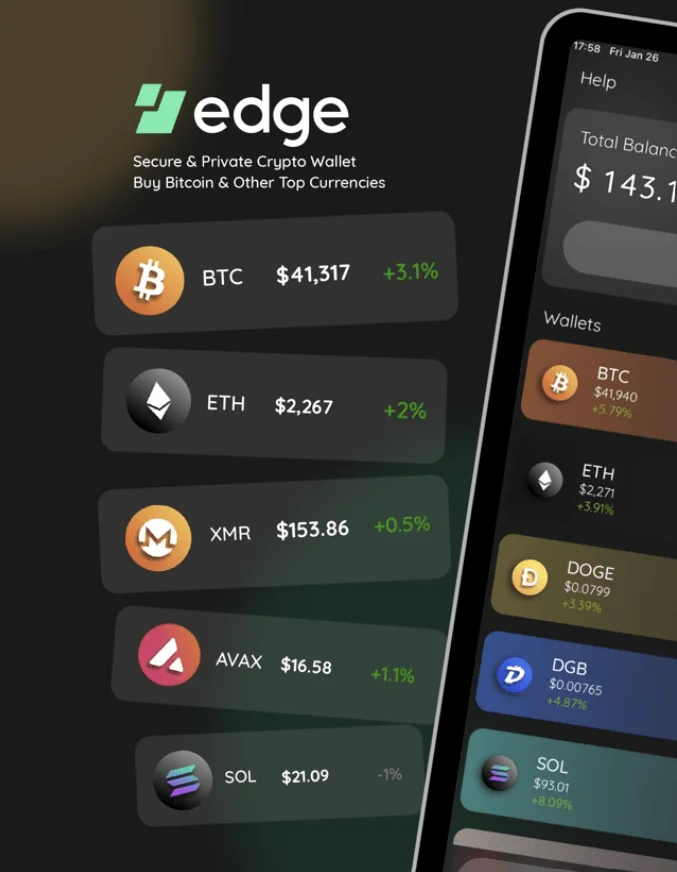
Edge Wallet is a versatile and user-friendly cryptocurrency wallet that supports a wide range of digital assets.
It is designed to provide secure storage and seamless access to DeFi products. Available on iOS, Android, Windows, and macOS, Edge Wallet allows users to manage their crypto assets across various platforms.
Features
- Multi-Currency Support: Edge Wallet supports numerous cryptocurrencies, including Bitcoin, Ethereum, and various ERC20 tokens, making it a comprehensive solution for storing diverse assets.
- Security: The wallet offers strong security features such as biometric authentication, two-factor authentication, and private key encryption, ensuring that users’ assets are kept safe.
- User-Friendly Interface: Designed with ease of use in mind, Edge Wallet provides an intuitive interface that simplifies the process of managing and transacting with cryptocurrencies.
- Integration with DeFi Protocols: Users can seamlessly interact with DeFi protocols, enabling them to participate in lending, staking, and swapping tokens directly from the wallet.
- Cross-Platform Availability: Edge Wallet is available on multiple platforms, including mobile apps and desktop versions, allowing users to access their assets from anywhere.
Pros and Cons
Pros:
- Wide Range of Supported Assets: Supports a variety of cryptocurrencies and ERC20 tokens, offering great flexibility.
- Strong Security Features: Implements robust security measures to protect user assets.
- Ease of Use: User-friendly interface suitable for both beginners and experienced users.
- Cross-Platform Accessibility: Available on multiple platforms, ensuring easy access to assets.
Cons:
- Limited to Supported Assets: Only supports 130 crypto assets, which may be restrictive for some users.
- No Hardware Option: As a software wallet, it may not provide the same level of security as hardware wallets.
Edge Wallet is a reliable choice for users looking to securely store and manage their crypto assets while having the ability to interact with various DeFi protocols. Its strong security features and user-friendly design make it a valuable tool for both novice and experienced cryptocurrency users
9. Coinbase Wallet
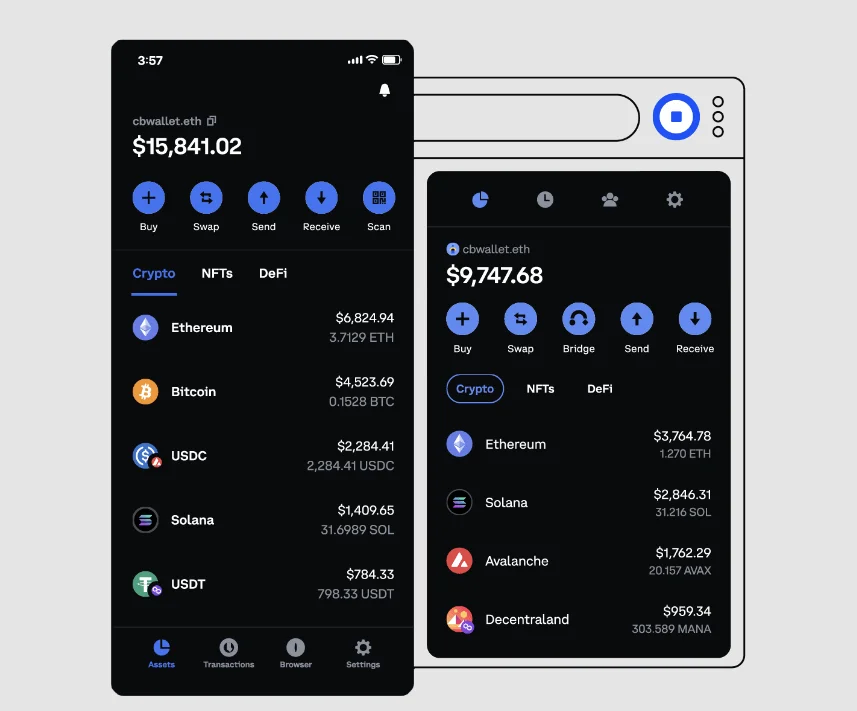
Coinbase Wallet is a secure, user-friendly decentralized wallet that supports a wide variety of cryptocurrencies. It allows users to store, send, receive, and trade digital assets such as NFTs.
The wallet provides full control over private keys, which are stored locally on the user’s device. This non-custodial wallet is designed to integrate seamlessly with the Coinbase app, enabling easy management of crypto assets.
Features
- Multi-Currency Support: Supports numerous cryptocurrencies, including Bitcoin, Ethereum, Litecoin, and more, making it a versatile crypto wallet to store diverse assets.
- DeFi Integration: Allows users to interact with DeFi protocols and participate in activities like staking and lending.
- User-Friendly Interface: Offers an intuitive interface, making it easy for both beginners and experienced users to navigate and manage their assets.
- Security: Features multi-step verification, two-factor authentication, and a recovery phrase to enhance security.
- Integration with Hardware Wallets: Can be integrated with popular hardware wallets like Ledger Nano S, providing an extra layer of security.
Pros and Cons
Pros:
- High Security: Multi-step verification and two-factor authentication protect user assets.
- User Control: Non-custodial setup ensures users have full control over their private keys.
- Ease of Use: Simple, intuitive interface suitable for users of all experience levels.
- Wide Support: Supports multiple blockchain networks and integrates with hardware wallets.
Cons:
- Limited NFT Support: Only supports NFTs on EVM-compatible networks.
- Local Storage: Private keys stored on the local device can be vulnerable to online attacks.
- Closed Source: The wallet’s source code is not publicly visible, which might be a concern for some users.
Coinbase Wallet is a robust choice for those looking to store their crypto assets securely while accessing diverse financial services offered by DeFi protocols.
Its integration with the Coinbase app and support for multiple cryptocurrencies make it a comprehensive tool for managing digital assets effectively
10. Trezor Wallet
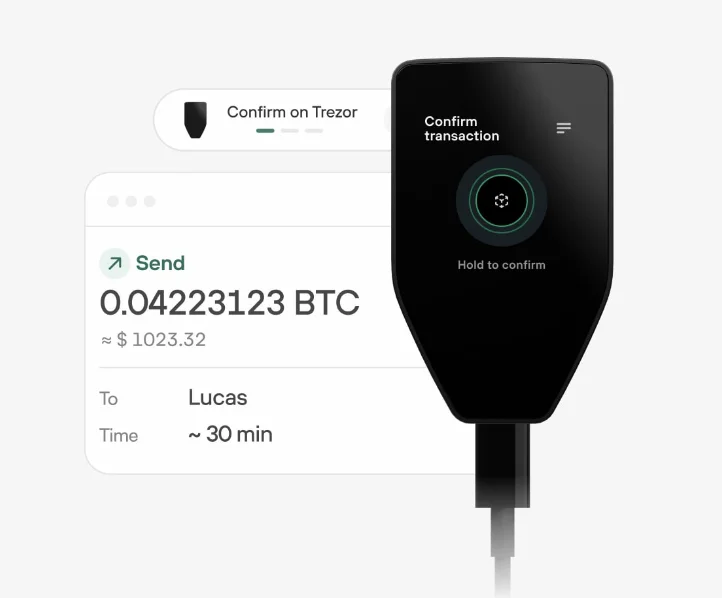
Trezor Wallet, developed by SatoshiLabs, is a well-regarded hardware wallet designed to securely store a wide range of cryptocurrencies.
It is known for its robust security features and ease of use, making it suitable for both beginners and experienced crypto users.
Trezor Wallet is available in different models, including the Trezor Model T and Trezor One, each offering various features to cater to different user needs.
Features
- Wide Range of Supported Cryptocurrencies: Trezor supports over 1,600 digital assets, including Bitcoin, Ethereum, and many ERC-20 tokens.
- Touchscreen Interface: The Trezor Model T features a 1.54-inch color touchscreen, allowing for easy navigation and secure input of PINs and passphrases directly on the device.
- Security: Offers top-tier security features such as two-factor authentication, Shamir Backup, and PIN protection. The device stores private keys offline, minimizing the risk of online attacks.
- Backup and Recovery: Utilizes a 12 to 24-word recovery seed phrase for wallet recovery in case of loss or damage. The Shamir Backup feature allows for splitting the seed phrase into multiple shares, enhancing security.
- Open-Source Software: Trezor’s firmware and software are open-source, allowing for transparency and regular security audits by the community.
Pros and Cons
Pros:
- High Security: Offline storage, advanced encryption, and open-source software ensure robust protection of crypto assets.
- User-Friendly: Intuitive touchscreen interface and comprehensive setup guides make it accessible for beginners.
- Wide Compatibility: Supports a large number of cryptocurrencies and integrates with popular software wallets like MetaMask.
- Enhanced Privacy: Features like CoinJoin and Tor integration help maintain transaction privacy.
Cons:
- Cost: Trezor wallets, particularly the Model T, are more expensive compared to some other hardware wallets.
- No Native NFT Storage: Requires integration with third-party wallets for managing NFTs.
- No Mobile App: Currently lacks a dedicated mobile app, limiting on-the-go access.
Trezor Wallet stands out as a secure and versatile option for storing and managing cryptocurrencies.
Its extensive security features and ease of use make it an excellent choice for users looking to store their crypto assets securely and interact with various DeFi protocols and applications
Key Features to Look for in a DeFi Wallet
When choosing a DeFi wallet, it’s important to consider several key features to ensure you select the best option for managing and growing your crypto assets.
Security Features
Security is paramount for any DeFi wallet. Look for wallets with robust security features, such as encryption and secure private key storage.
Hardware wallets like Ledger and Trezor are known for their high security, storing private keys offline to protect against online threats.
Non-custodial crypto wallets provide additional security by allowing users to retain full control over their private keys, minimizing the risk of hacks and theft.
Usability and User Experience
A DeFi wallet should be user-friendly and easy to navigate. Wallets with intuitive interfaces, like MetaMask and Trust Wallet, enable users to seamlessly interact with various DeFi applications.
The ease of creating new wallets or importing existing ones is also a critical factor. A wallet that supports multiple DeFi platforms and provides a smooth user experience can significantly enhance your DeFi activities.
Integration with DeFi Protocols
Integration with DeFi protocols is essential for accessing a wide range of financial services. Look for wallets that allow users to interact with various DeFi applications, such as lending, staking, and trading.
Wallets like the Crypto.com DeFi Wallet app and MetaMask provide direct access to DeFi protocols, enabling users to earn passive income via DeFi earn programs like Aave lending. Integration with platforms like WalletConnect also enhances accessibility.
Supported Cryptocurrencies
The ability to store multiple types of cryptocurrencies is crucial for a DeFi wallet. A good wallet should support a variety of crypto assets, including popular coins like Bitcoin and Ethereum, as well as various DeFi tokens.
Wallets like Trust Wallet and Guarda Wallet offer broad support for numerous cryptocurrencies, making it easier to manage a diverse portfolio.
Private Key Management
Effective private key management is critical for maintaining control over your crypto assets. Non-custodial crypto wallets, such as MyEtherWallet and the Eidoo Wallet, ensure that users have complete ownership of their private keys.
This feature allows users to store their crypto securely and access the diverse financial services offered by DeFi platforms without relying on third parties.
How to Use a DeFi Wallet: Step-by-Step Guide
Using a DeFi wallet can enhance your experience in the decentralized finance ecosystem by providing secure storage and easy access to various DeFi protocols.
Here’s how to get started and optimize your usage.
- Download and Install the Wallet: Visit the official website or app store for your chosen DeFi wallet, such as MetaMask, Trust Wallet, or Argent Wallet. Download and install the app on your device.
- Create a New Wallet: Open the app and select “Create New Wallet.” Follow the prompts to set up your account, which will include creating a strong password.
- Backup Your Recovery Phrase: The wallet will generate a recovery phrase. Write this down and store it securely. This phrase is crucial for recovering your wallet if you lose access.
- Set Up Security Features: Enable additional security features like two-factor authentication (2FA) or biometric authentication for extra protection.
- Fund Your Wallet: Transfer cryptocurrencies from an exchange or another wallet to your DeFi wallet. You can do this by copying your wallet’s address and using it to send funds.
- Interact with DeFi Protocols: Access the wallet’s dApp browser to interact with various DeFi platforms. This allows you to perform activities such as staking, lending, and swapping tokens.
- Monitor and Manage Assets: Use the wallet interface to check balances, track transactions, and manage your assets.
Conclusion
In conclusion, choosing the right DeFi wallet is crucial for securely managing and interacting with your crypto assets. Each wallet offers unique features and security measures to meet diverse user needs.
Ledger and Trezor provide robust security through hardware solutions, while MetaMask and Trust Wallet offer user-friendly interfaces and seamless integration with DeFi protocols. Argent and Guarda wallets emphasize both security and ease of use, making them suitable for beginners and experienced users alike.
Bitget, Edge, and Crypto.com wallets offer extensive support for multiple cryptocurrencies and DeFi services, ensuring versatile and comprehensive management of digital assets. Prioritizing security practices, such as enabling two-factor authentication, securely storing private keys, and avoiding phishing scams, is essential to protect your investments.
By carefully evaluating these features and practices, you can select the right DeFi wallet to access the diverse financial services and opportunities offered in the DeFi ecosystem
Article Sources
At UncryptoNote, we prioritize accuracy and integrity in our content. Our writers are required to utilize primary sources to substantiate their work. This includes white papers, government data, firsthand reporting, and interviews with experts in the industry. We also incorporate original research from other credible publishers when relevant. This rigorous approach ensures that we deliver content that is both precise and impartial.
